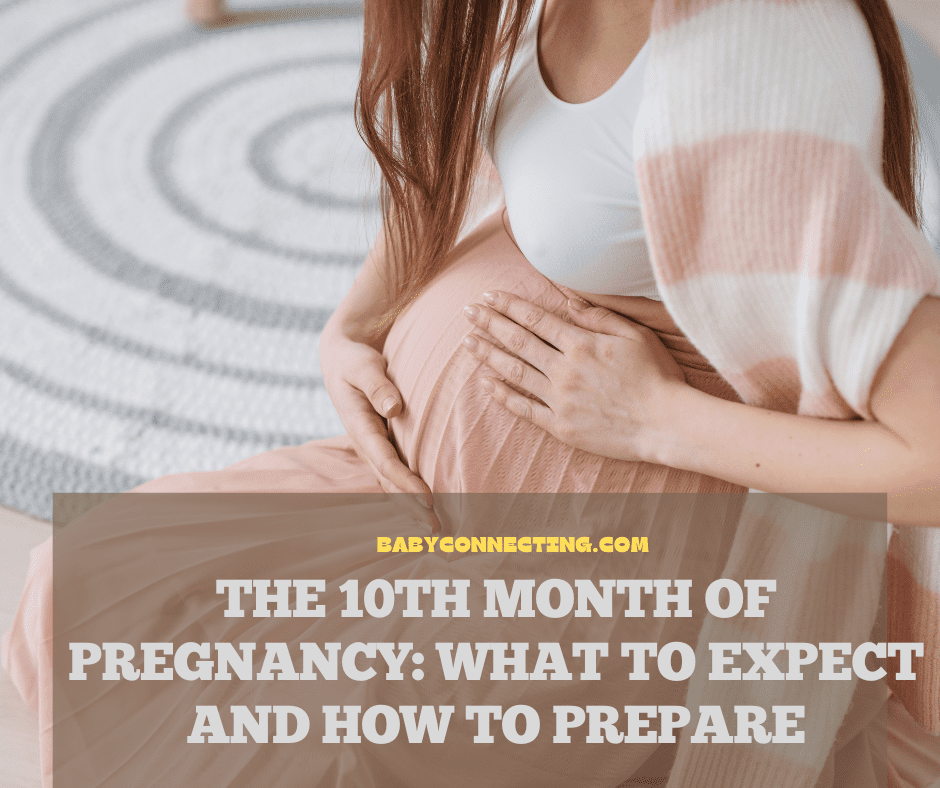Body Image and Self-Love During Pregnancy: Embracing the Changes
Pregnancy is a time of remarkable change in a woman’s life. As the body adapts to nurture a growing baby, it undergoes many physical transformations. For some, these changes can be a beautiful reminder of the miracle of life. For others, however, it may come with feelings of discomfort, self-consciousness, or a negative body image. Struggling with body image during pregnancy is incredibly common, but it’s also important to recognize that your body is doing extraordinary things and should be celebrated.
In this comprehensive guide, we’ll explore the challenges women face when it comes to body image during pregnancy, the importance of self-love, and practical strategies for fostering a positive relationship with your body. Whether you’re dealing with stretch marks, weight gain, or the emotional ups and downs that accompany pregnancy, this blog will help you navigate this journey with self-compassion and love.

1. The Changing Body During Pregnancy
Pregnancy is a time when women’s bodies undergo profound transformations. As your baby grows, your body adapts to accommodate this new life in many ways. Here are some of the most common changes women experience during pregnancy:
Weight Gain
It’s natural to gain weight during pregnancy as your body works to support the growing fetus. On average, women gain between 25 and 35 pounds throughout the course of their pregnancy, though this can vary depending on individual circumstances. This weight gain includes the baby, placenta, amniotic fluid, increased blood volume, and changes in breast tissue and fat stores.
Changes in Skin and Stretch Marks
As your skin stretches to accommodate your growing belly, you may notice the appearance of stretch marks, particularly around the abdomen, breasts, and thighs. These marks are common and completely normal, but they can cause some women to feel self-conscious about their appearance.
Breast Changes
Your breasts undergo significant changes during pregnancy. They may become larger, more sensitive, and sometimes sore. As the body prepares for breastfeeding, the areolas may darken, and veins may become more visible. These changes are all part of the beautiful process of creating and nurturing life.
Swelling and Water Retention
Swelling in the feet, ankles, and hands is a common pregnancy symptom. Water retention can cause discomfort and make you feel less than your best. Swelling tends to increase in the later stages of pregnancy, especially in the warmer months or if you’re on your feet a lot.
Hormonal Changes
Hormonal fluctuations during pregnancy can lead to changes in your skin, hair, and nails. Some women experience a “pregnancy glow,” while others may face acne, dark spots, or other skin changes. These hormonal shifts can affect how you feel about your appearance.
Posture and Balance
As your belly grows, your center of gravity shifts, which may lead to changes in posture. You might notice that your lower back hurts or that you have to adjust the way you move. These physical changes can affect your body image and may lead to feelings of awkwardness or discomfort.

2. The Impact of Pregnancy on Body Image
The physical changes during pregnancy can be both awe-inspiring and overwhelming. While some women embrace their changing bodies, others may find it difficult to accept or feel disconnected from their pre-pregnancy self. Here’s how pregnancy can affect body image:
Cultural and Societal Pressures
Society often places a high value on a specific body type—lean, toned, and youthful. When your body changes dramatically during pregnancy, you may feel like you’re not meeting these external standards of beauty. The media’s portrayal of pregnancy is often filtered or idealized, leading many women to feel that their experience doesn’t measure up to what they see on screen or in magazines.
Self-Criticism and Negative Thoughts
Pregnancy can bring a flood of emotions, and it’s not uncommon to struggle with self-criticism. Many women may feel insecure about gaining weight or developing stretch marks. There may also be a sense of loss when it comes to how your body looked before pregnancy, leading to negative self-talk and diminished self-esteem.
Comparison with Others
Pregnant women often compare themselves to others—whether it’s a friend, a celebrity, or even strangers on social media. This comparison can heighten insecurities, particularly when someone’s pregnancy seems to fit society’s ideals while yours may feel different. These comparisons can cloud the beauty of your own unique experience.
Physical Discomfort and Fatigue
Pregnancy isn’t always glamorous. From morning sickness to swelling, pregnancy can bring a host of discomforts that make it hard to feel good about your body. Fatigue can further contribute to feeling disconnected or less motivated to take care of yourself.
3. The Importance of Self-Love During Pregnancy
Pregnancy is a time of change, but it’s also an opportunity to cultivate a deeper sense of self-love and self-compassion. Here’s why nurturing a positive relationship with your body is essential during this time:
Embracing the Miracle of Pregnancy
Your body is doing incredible work to create and sustain life. While pregnancy may bring physical discomfort, it’s important to acknowledge and appreciate the miracle of it all. Every stretch mark, every pound gained, and every change your body undergoes is a testament to the strength and resilience you possess.
Improving Mental Health
Maintaining a positive body image and practicing self-love can have a significant impact on your mental health. Research shows that women who practice self-compassion are less likely to experience depression, anxiety, and negative body image during pregnancy. Loving yourself and your body can also help you cope with the emotional challenges that may arise.
Enhancing the Bond with Your Baby
When you learn to love and accept your body, it becomes easier to connect with your growing baby. Pregnancy is a time to nurture not just your physical health but also your emotional and mental well-being. Developing a loving relationship with your body fosters a deeper connection to your baby and the experience of pregnancy.
Teaching Your Child Healthy Body Image
As a mother, you play an important role in shaping your child’s perceptions of body image. By practicing self-love and positive self-talk, you set an example for your child on how to embrace their own bodies. Modeling body positivity helps create a healthy foundation for your child’s future relationship with their own body.

4. Strategies for Cultivating Body Image and Self-Love During Pregnancy
It’s natural to have moments of doubt or insecurity during pregnancy, but there are steps you can take to build a positive body image and cultivate self-love. Here are some practical strategies for embracing your body during this transformative time:
1. Focus on Your Body’s Strengths and Accomplishments
Instead of focusing on what has changed, shift your mindset to what your body is capable of. Your body is supporting the growth of your baby, nourishing and protecting them throughout pregnancy. Appreciate the strength and resilience your body exhibits daily.
Tip: Write down three things your body is doing right every day, whether it’s carrying your baby, giving you energy, or simply getting you through the day.
2. Practice Positive Affirmations
Using positive affirmations is a powerful way to rewire your mindset and combat negative thoughts. Repeat daily affirmations that celebrate your body’s beauty and strength, such as:
“My body is strong and capable.”
“I embrace the changes that come with pregnancy.”
“I love and appreciate my body for creating new life.”
Tip: Write these affirmations on sticky notes and place them where you’ll see them regularly—on your mirror, computer, or phone.
3. Celebrate Your Changing Body
Rather than hiding your growing belly or feeling embarrassed by physical changes, celebrate them! Take photos of your belly as it grows and document your pregnancy journey. Buy clothes that make you feel comfortable and confident in your changing body. Allow yourself to revel in the beauty of pregnancy.
Tip: Embrace maternity wear that reflects your personal style and highlights your growing belly. Wearing clothes that make you feel good can significantly improve your body image.
4. Take Care of Your Body
Engage in activities that promote both physical and emotional well-being. Eating a balanced diet, staying active with pregnancy-safe exercises, and getting enough rest are essential for your health. Taking care of your body also helps you feel more confident and connected to yourself.
Tip: Pamper yourself with a massage, a bubble bath, or a skincare routine. Taking time for self-care boosts your confidence and reinforces the importance of nurturing your body.
5. Connect with Other Expecting Mothers
Sometimes, talking to other women who are going through the same experiences can be incredibly reassuring. Share your body image concerns with friends, family, or in online pregnancy support groups. Many women face similar struggles, and the solidarity can help alleviate feelings of isolation.
Tip: Join a local or virtual prenatal class or a support group where you can connect with others who are navigating pregnancy.
6. Limit Social Media Comparison
Social media can often amplify feelings of inadequacy, especially when it comes to body image. Limit your exposure to accounts or images that make you feel bad about yourself. Instead, follow pages that promote body positivity and self-love.
Tip: Curate your feed to include accounts that celebrate diversity, real pregnancy experiences, and body acceptance.
7. Seek Professional Support
If you’re struggling with body image issues that feel overwhelming or lead to anxiety or depression, it’s important to seek support. A therapist or counselor can help you work through negative body image and develop healthier coping strategies.
Tip: Many therapists specialize in prenatal or postnatal mental health and can provide support for body image concerns during pregnancy.
5. Conclusion
Pregnancy is a beautiful, transformative journey, but it can also come with its challenges, particularly when it comes to body image. It’s normal to experience a range of emotions as your body changes, but remember that these changes are part of the incredible process of growing and nurturing new life. By embracing your body with self-love and gratitude, you can foster a healthy relationship with yourself that will benefit both you and your baby.
The journey toward self-love during pregnancy is unique for every woman. Practice patience with yourself, and remember that you are not alone. With the right mindset, strategies, and support, you can celebrate the beauty of your changing body and enjoy this remarkable chapter in your life. You are strong, beautiful, and worthy of love—just as you are.


